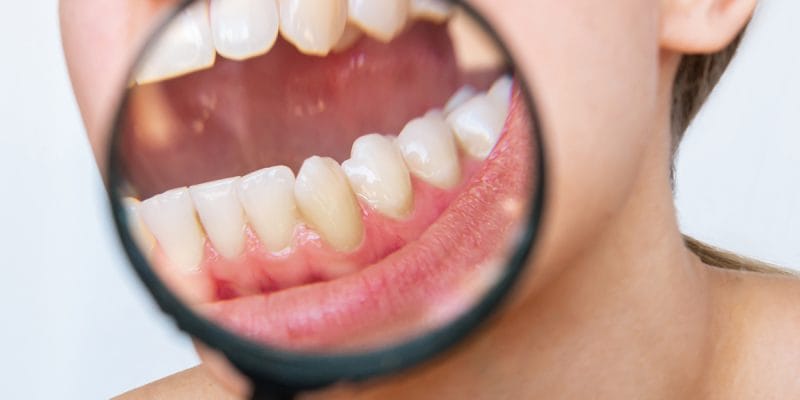Nobody likes to have bad breath. You can usually easily prevent this unpleasant condition with good oral care. However, many people may adopt faulty oral hygiene habits because they don’t understand what exactly causes the smell. So, does plaque cause bad breath?
Smile Perfection staff believe in providing optimal oral care services and advice. We know our way around teeth, to the point our experienced dentists have the qualifications necessary to provide dental veneers in Tucson, AZ. Continue reading to learn how tartar and plaque cause bad breath and a few additional facts to build your oral hygiene knowledge.
#1. Tongue Bacteria Is Not the Only Thing That Can Smell
Bad breath, or halitosis, also comes from the buildup of plaque around your teeth, forming from natural oral bacteria breaking down carbohydrates and other food materials, making volatile sulfur compounds. These compounds produce the smell we all love to hate.
Most people brush their tongues to help remove the bad-smelling bacteria hiding in tongue crevices, but flossing and brushing teeth is also important. Consistent oral hygiene habits help eliminate the smell and benefit your oral health.
#2. Plaque Becomes Tartar in a Limited Amount of Time
Because plaque causes bad breath, tartar does the same. Tartar, a buildup of plaque that hardens over time, requires dentist tools to remove it.
After you eat, plaque forms very quickly because of bacteria breaking down your food. It only takes about 48 hours for bacterial plaque to become tartar, less if you have a dry mouth. Generally, we know that tartar increases your risk for gum disease, but it also continues to produce a bad smell.
The yellow compactions usually form around the bases and between your teeth where brushing and flossing did not reach. Brushing and flossing prevent that plaque from solidifying. Once it is too late, the developed tartar releases foul smells you can’t remove with personal care, requiring a dentist. Does plaque cause bad breath? Yes, it can.
#3. Chewing Gum Can Add Value to Your Oral Hygiene Habits
Saliva helps deter bacterial activity, extending the time it takes for plaque to become tartar. However, prescription medications and natural causes can result in a dry mouth. One way to help yourself produce more saliva includes chewing gum.
When gum helps you produce saliva, you increase the time needed for plaque to form into tartar. You also help your breath temporarily smell better while you prepare to brush and floss your teeth. In this manner, gum with little to no sugar benefits your oral hygiene habits.
Learn How to Better Care for Your Teeth with Smile Perfection
Have you been wondering, “Does plaque cause bad breath?” Crucial knowledge like plaque causing bad breath should be obvious, but many people remain unaware. That is why our dental care team at Smile Perfection takes extra care of your oral health. We provide cleanings at reasonable costs, inform others about the different types of toothbrushes, screen for oral cancer, and more.
Call 520-293-2166 today to schedule your oral care appointment in Tucson, AZ, and protect or regain a healthy smile.




